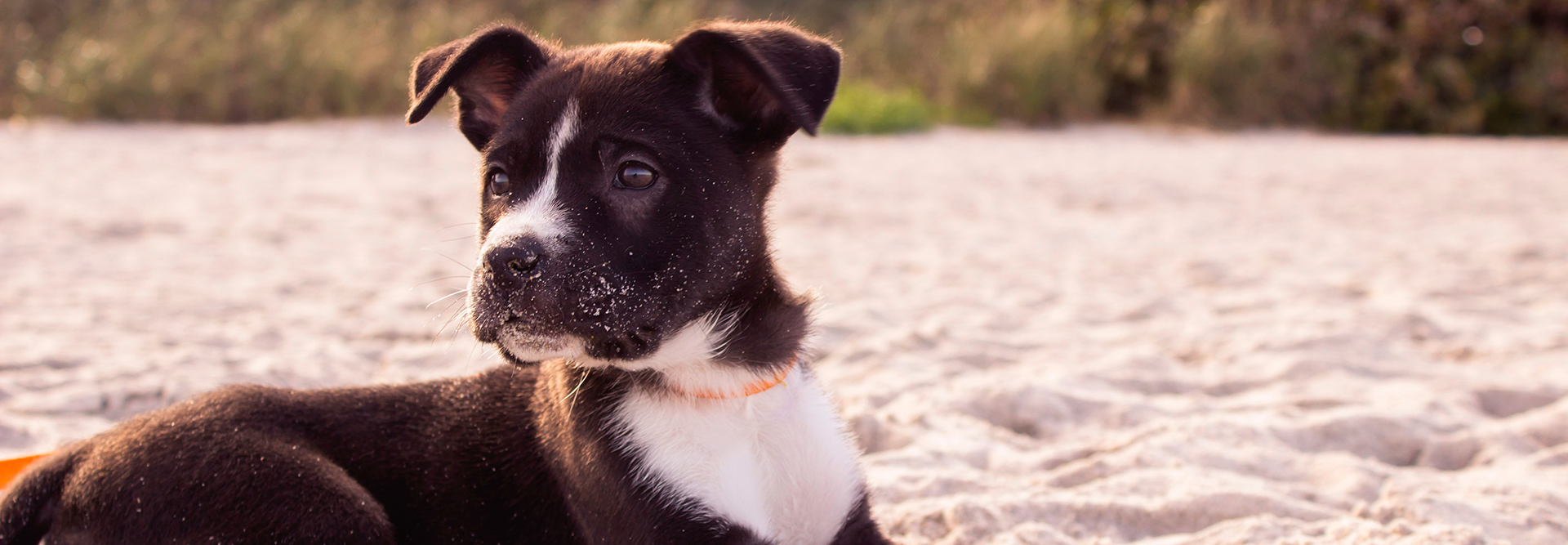
Do you get those pesky allergies every time spring and summer roll around? It can be very frustrating to go throughout the day with a runny nose, itchy eyes and/or constant sneezing. Like humans, puppies can suffer through the same annoying symptoms of seasonal allergies. And their symptoms are similar to that of humans, including […]
Do you get those pesky allergies every time spring and summer roll around? It can be very frustrating to go throughout the day with a runny nose, itchy eyes and/or constant sneezing. Like humans, puppies can suffer through the same annoying symptoms of seasonal allergies. And their symptoms are similar to that of humans, including irritated eyes, constant sneezing, and itchiness—this results in puppies licking their paws non-stop.
From chemicals around the house to natural substances outside, anything can trigger these symptoms in your puppy. Here are a few ways you can help your puppy deal with those pesky seasonal allergies and prevent potential infections.
Avoid walking your puppy at certain times of the day, such as early morning or late afternoon. Why? Well, pollen is produced at highly concentrated levels at those times. Fields with many plants tend to have the most pollen production so steer clear of these areas, just in case.
Once you arrive home, make sure to wipe your puppy’s fur and paws to remove any potential allergens that can start up symptoms. You should place extra attention on your puppy’s paws as allergens can affect the sensitive skin. You can check out more about how to clean your puppy’s paws through our blog, 5 Ways to Keep Your Puppy’s Paws Clean.
To better alleviate seasonal allergies for your puppy, you should regularly clear the air and surfaces in your home. This includes to change the air filters and/or running an air conditioner to prevent mold from growing in your home.
Limit the amount of times your puppy spends in the bathroom and laundry rooms as these places are more likely to grow mold. You should also regularly vacuum your home and clean surfaces that may collect dust and pollen.
You can prevent dry, itchy skin by giving your puppy a nice bath. Ask your veterinarian if you can give your puppy baths more often than once. You can wash their fur with gentle, hypoallergenic dog shampoo and mix it with a moisturizing oil for puppies.
If your puppy’s allergy symptoms are persistent, try giving your puppy some dietary supplements like fish oil or omega-3 oils with veterinarian advice. These oils help improve itchiness and improves their skin. Most importantly, you should make sure your puppy is drinking adequate amounts of clean water.
If your puppy is still sneezing repeatedly, chewing on their paws, or exhibiting other symptoms, make an appointment to see your vet to identify any underlying problems. Your vet may also suggest other alternative medicines and treatments that can suppress your puppy’s seasonal allergies.
Having guests over with allergies to puppies? See how you can make your house hypoallergenic by reading our blog, How To Make Your Home Allergy-Free For Guests.